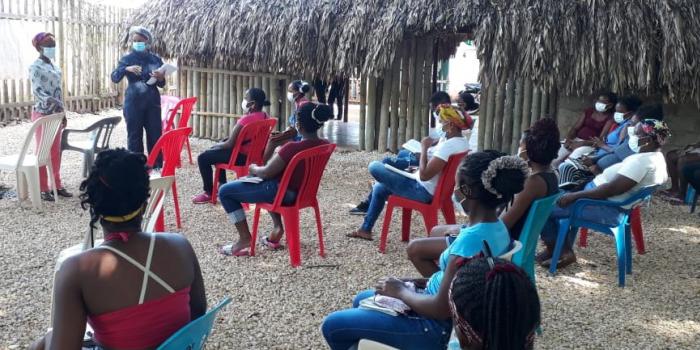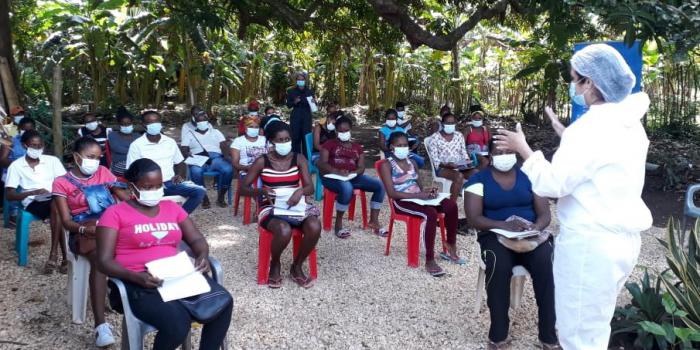
Collective process of black communities advances in María La Baja, Bolívar
In this area, the Victims Unit works with 10 community councils to restore their rights as collective victims of armed conflict, also seeking the social and economic development of the population and recovering their culture and customs.


Joiner Padilla Álvarez is the vice president of the community council of black communities of Guarismo, one of the 10 community councils, located in the municipality of María La Baja, that work hand in hand with the Victims Unit in their collective process.
He has been participating in the community conferences that the Unit carries out in the territory, to comply with the five phases of the Collective Repair route (identification, enlistment, characterization of the damage, Formulation of measures and implementation and monitoring of the Comprehensive Collective Repair Plan), his expectation is that the communities recover what they lost and move forward.
"We want the Guarismo community council to transform because we were really quite deteriorated with so many things that have happened to us, with so much violence that we have experienced", said Padilla Álvarez.
This collective reparation includes important processes such as the reactivation of the economy, starting with the sowing of traditional crops.
“We stopped cultivating and lost the tradition because in the countryside there were groups outside the law. We want to recover the economy in a productive way and go back to cultivating our products such as cassava, corn, ahuyama and yams”, said Padilla
Another aspect to highlight is the recovery of their ancestral customs, as stated by Yuzneis Eserna Herrera, leader of the community: "May the prayers, midwives and sobanderos return, they are part of our territory".
According to the statement made by the director of the Victims Unit in Bolívar and San Andrés, Miledy Galeano Paz, these communities have already completed the enlistment phase and are making progress in formalizing their PIRC. "In the community enlistment phase, we prepare them on the route of collective reparation, ethnic issues, administrative and judicial reparation, comprehensive reparation measures and the norms, decrees and orders that govern and involve them".
The next step is the prior consultation, where the phases of characterization of the damage and formulation of measures will be worked on.
"On November 2 and 3, prior consultation with the Ministry of the Interior and the Public Ministry will be installed", added the official.
In these days both young people and adults participate, who contributed their knowledge to carry out the collective project.
(End/PDC/CMC/LMY)






